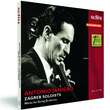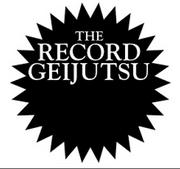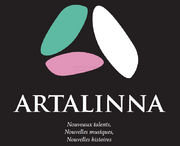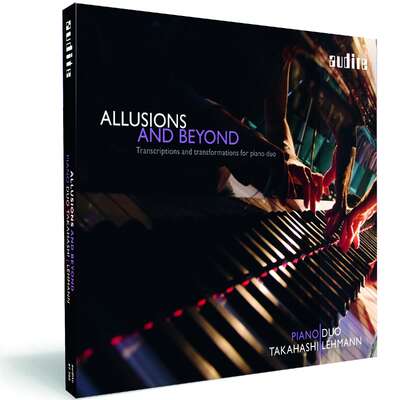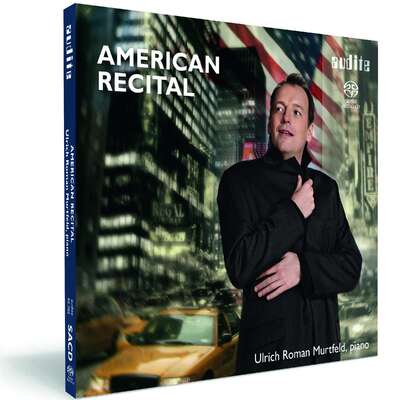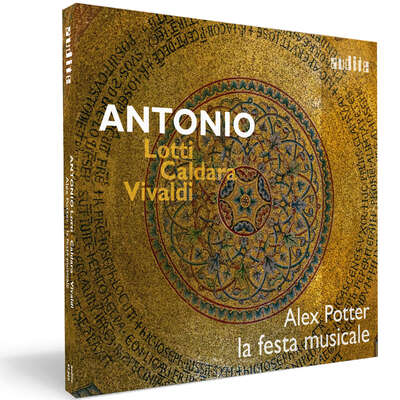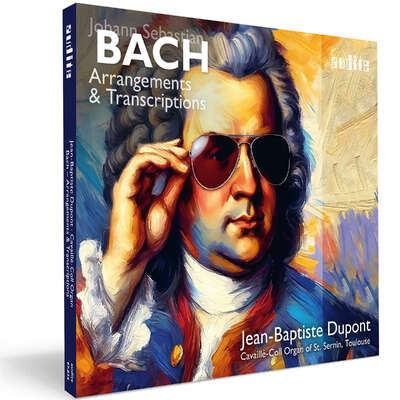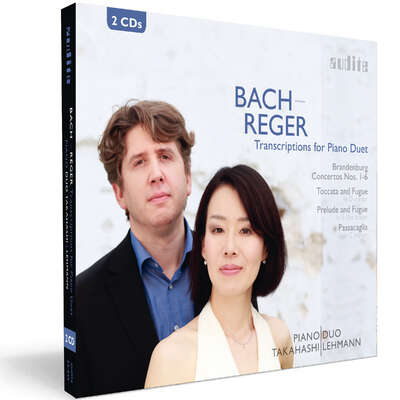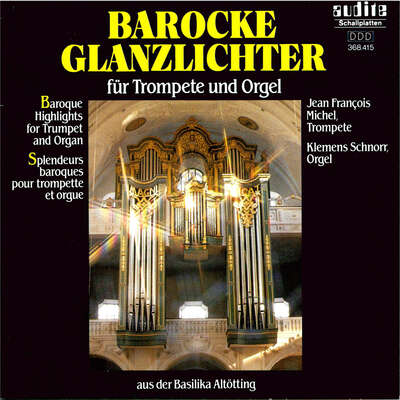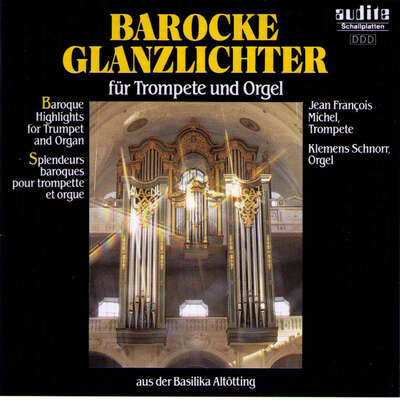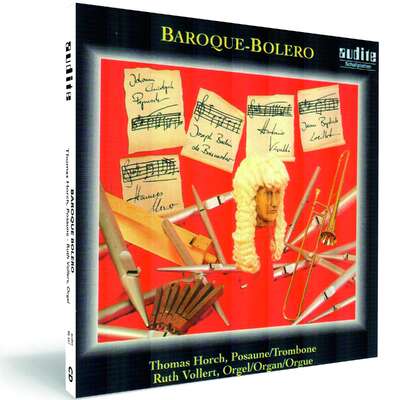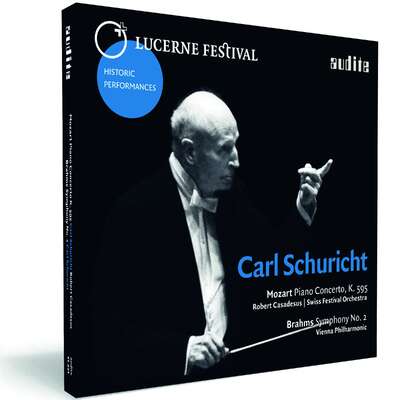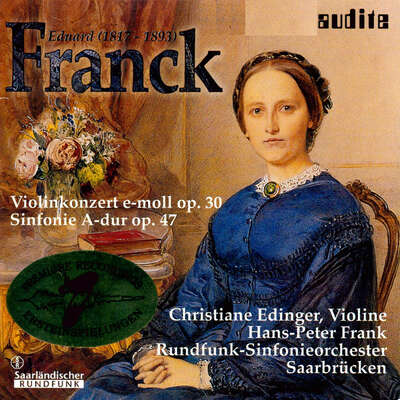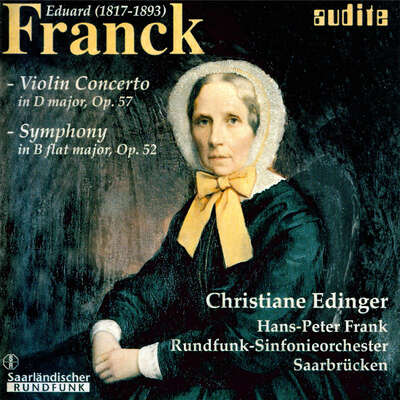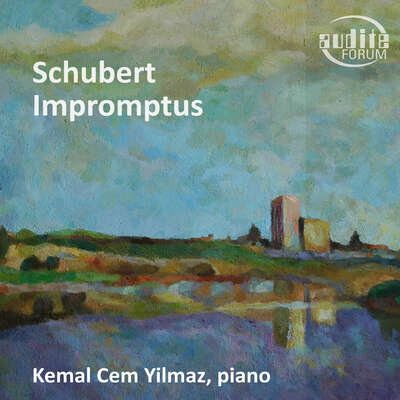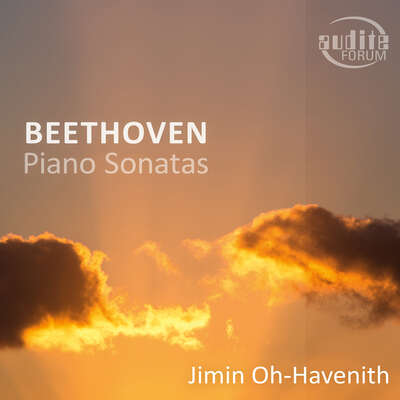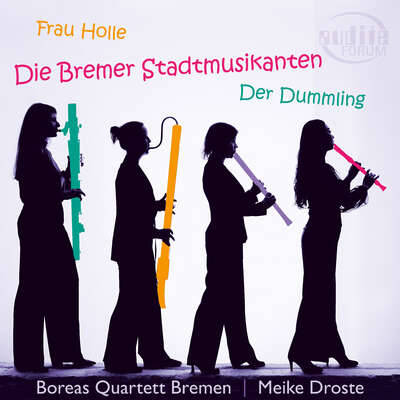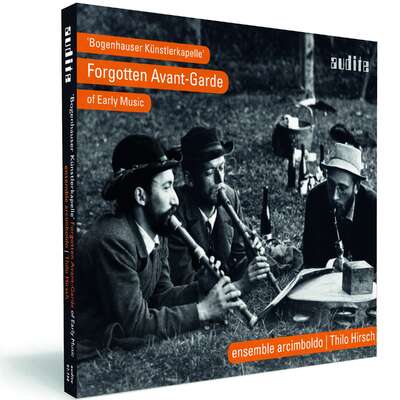
Die vorliegende Aufnahme präsentiert das Traditionsorchester Zagreb Soloists unter ihrem langjährigen Leiter Antonio Janigro. Charakteristika des Ensembles sind sein reiner Streicherklang und die kleine Besetzung von nur 12 Musikern. Die Erstveröffentlichungen aus dem RIAS-Archiv zeigen einen Repertoirequerschnitt aus den frühen Jahren mit Antonio Janigro als Dirigent und Solist.mehr
"Here we have recordings from the Golden Age of the Zagreb Soloists, under the direction of their legendary conductor Anonio Janigro. The performances are vivid, colourful, with an extremely rich sound which has come out of a perfect remastering." (Pizzicato)
Details
|
Antonio Janigro & The Zagreb Soloists
Works for String Orchestra |
|
| Artikelnummer: | 95.639 |
|---|---|
| EAN-Code: | 4022143956392 |
| Preisgruppe: | BCB |
| Veröffentlichungsdatum: | 15. Januar 2016 |
| Spielzeit: | 78 min. |
Zusatzmaterial
Informationen
Die vorliegende Aufnahme präsentiert die traditionsreichen Zagreb Soloists unter ihrem langjährigen Leiter Antonio Janigro. Die Erstveröffentlichungen aus dem RIAS-Archiv zeigen einen Repertoirequerschnitt aus den frühen Jahren mit Antonio Janigro als Dirigent und Solist. Die zeitgleiche Veröffentlichung der historischen Aufnahmen mit der Neuproduktion der Zagreb Soloists und Marc Coppey als Solist und Dirigent (aud. 97.716) vervollständigt den Blick auf das geschichtsträchtige Ensemble.
Gegründet 1953, zählten die Zagreb Soloists (Zagrebački solisti) in den 1960er und 1970er Jahren zu den weltweit erfolgreichsten Kammerorchestern. Als Botschafter ihres Heimatlandes Kroatien, Teil des früheren Jugoslawien, tourten sie unablässig um die Welt. Charakteristika des Kammerorchesters sind sein reiner Streicherklang und die kleine Besetzung von nur 12 Musikern.
Besprechungen
Record Geijutsu | 2018.12 | 1. Dezember 2018
Japanische Rezension siehe PDF!Mehr lesen
Radio Bremen | 11.06.2016 | Marita Emigholz | 11. Juni 2016 | Quelle: http://www.radio... BROADCAST
Sendebeleg siehe PDF!Mehr lesen
Record Geijutsu | Jun.2016 | 1. Juni 2016
Japanische Rezension siehe PDF!Mehr lesen
Fanfare | June 2016 | James A. Altena | 1. Juni 2016
The names of The Zagreb Soloists (or I Solisti Zagreb, as it often appeared instead) and its director, cellist Antonio Janigro, will doubtless beMehr lesen
Der Kurier | 05.02.2016 | Alexander Werner | 5. Februar 2016
Schon bei Corellis Concerto grosso besticht die schillernde Aura, die enorme Transparenz in reinstem Streicherklang bei flotten Tempi, subtiler Ausdifferenzierung und expressiver Kraft. Eigenschaften, die das ganze Programm auszeichnen, das vom Barock über die Klassik mit einem glänzenden Divertimento Mozarts bis ins 20. Jahrhundert mit Hindemith, Reger oder Schostakowitch reicht. Schillernd und impulsiv.Mehr lesen
www.pizzicato.lu | 03/02/2016 | Remy Franck | 3. Februar 2016 Goldene Zeit der ‘Zagreb Soloists’
Als ich 2015 die Zagreber Solisten live hörte, war ich maßlos enttäuscht: nur ein müder, fahler Abglanz war vorhanden von dem, was mir ausMehr lesen
Die vorliegende Aufnahme präsentiert das mit 12 Streichern besetzte Ensemble unter seinem langjährigen Leiter Antonio Janigro. Die Erstveröffentlichungen aus dem RIAS-Archiv bieten ein gemischtes Programm, das auf hohem Niveau musiziert wird. Janigro ist ein ebenso inspirierter Dirigent wie Solist auf dem Cello.
Ob Corelli, Rossini oder Mozart, die Musik ist immer elegant, perfekt modelliert und feinnervig ziseliert. Im Barber-Adagio erreicht das Ensemble eine größtmögliche, tief empfundene Emotionalität.
Dass dies so sehr zum Genuss wird, trotz Mono-Klang, liegt am erstaunlich guten Remastering der originalen Tonbänder durch Audite-Chef Ludger Böckenhoff, der wohl mit allen möglichen Lichtquellen bis hin zu Infrarotbeleuchtung am Werk war, um diesen phänomenalen Detailreichtum zu erzielen, den man hier hören kann.
Here we have recordings from the Golden Age of the Zagreb Soloists, under the direction of their legendary conductor Anonio Janigro. The performances are vivid, colourful, with an extremely rich sound which has come out of a perfect remastering.
ClicMag | N° 35 Février 2016 | Jean-Charles Hoffelé | 1. Februar 2016
La surprise de ce très bel hommage vient plutôt du coté des modernes: le ton ému de la Trauermusik d'Hindemith où l'alto de Stefano Passagio prie littéralement, l'élégance désolée de l'Adagio de Barber où la poésie de l'Andante lyrique de Reger, les inflexions hongroises de l'Improvisation concertante que Milko Kelemen écrivit à leur intention et qui rappelle plutôt Bartok que la musique populaire croate, le mordant du jeu d'attaque dans le Scherzo de l'Octuor de Chostakovitch, tout cela compose le vrai portrait d'un ensemble qu'on a trop souvent rangé dans la poussière des formations pour le répertoire baroques stylistiquement dépassées.Mehr lesen
www.musicweb-international.com | Feb 2016 | Stephen Greenbank | 1. Februar 2016
I always associate the Zagreb Soloists with their excellent recordings of Bach cantatas and Handel arias performed by the Canadian contralto MaureenMehr lesen
An ensemble of twelve string players, they were formed in 1953 through the auspices of Zagreb Radiotelevision. The Italian cellist Antonio Janigro became their artistic director, acting both as conductor and soloist until 1968. They exist to this day, having travelled the world and made many recordings of a wide-ranging repertoire. The performances here are all radio productions, made between 1957 and 1966 during Janigro’s distinguished tenure; all are in mono. They were taped whilst on their frequent visits to Berlin.
This programme of music showcases the Zagreb Soloists’ wide-ranging repertoire, extending from the Baroque to the twentieth century. On their travels they saw themselves as cultural ambassadors of Yugoslavia, later Croatia and they ensured that the majority of their concerts featured at least one work by a Croatian composer. The country is represented here by Milko Kelemen, a name new to me, but he was closely associated with the ensemble. His brief four movement Concertante Improvisations gives plenty of scope for them to shine. The first movement has echoes of Bartók's night music, and is reminiscent of his Divertimento for String Orchestra. Pizzicato features prominently in the third movement Allegro scherzando, whilst the finale is, once again, of a Bartókian persuasion. The only bad apple here is the Adagio for Strings by Samuel Barber, which is rushed (compare). Maybe they were having a bad day, as the performance lacks feeling and expression; it’s as if they’re playing on auto-pilot, failing to savour the eloquence of this marvellous score. In Reger’s Lyric Andante, on the other hand, the players luxuriate in the music’s lyricism. Their fervent expression and rich, velvety tone, makes this a performance to relish. There’s some superb playing from the unnamed solo violist in Hindemith’s Trauermusik. The performance projects the deep sorrow and grief of this poignant score.
In Vivaldi’s Concerto in D major, Janigro takes centre-stage as cello soloist in a transcription of this violin concerto, probably made by Janigro himself, though not stated as such. He transcribed several Vivaldi concertos for his instrument, so it is a treat to have one example. His rich, warm tone and spotless intonation lend graceful simplicity to this well managed account. Added to this, an ideal balance has been struck between soloist and orchestra. The Corelli Concerto grosso, Op. 6/4 is notable for its subtlety and finesse.
Despite the mono sound, the audio quality throughout is exceptionally fine on this generously timed disc. Annotations in German and English are comparable to Audite’s usual high standard.
www.artalinna.com | 1 février 2016 | Jean-Charles Hoffelé | 1. Februar 2016 Souvenirs sonores
Mais la surprise de ce très bel hommage vient plutôt du côté des modernes : le ton ému de la Trauermusik d’Hindemith où l’alto de Stefano Passagio prie littéralement, l’élégance désolée de l’Adagio de Barber ou la poésie de l’Andante lyrique de Reger, les inflexions hongroises de l’Improvisation concertante que Milko Kelemen écrivit à leur intention et qui rappelle plutôt Bartók que la musique populaire croate, le mordant du jeu d’attaque dans le Scherzo de l’Octuor de Chostakovitch, tout cela compose le vrai portrait d’un ensemble qu’on a trop souvent rangé dans la poussière des formations pour le répertoire baroque stylistiquement dépassées.<br /> Mehr lesen
